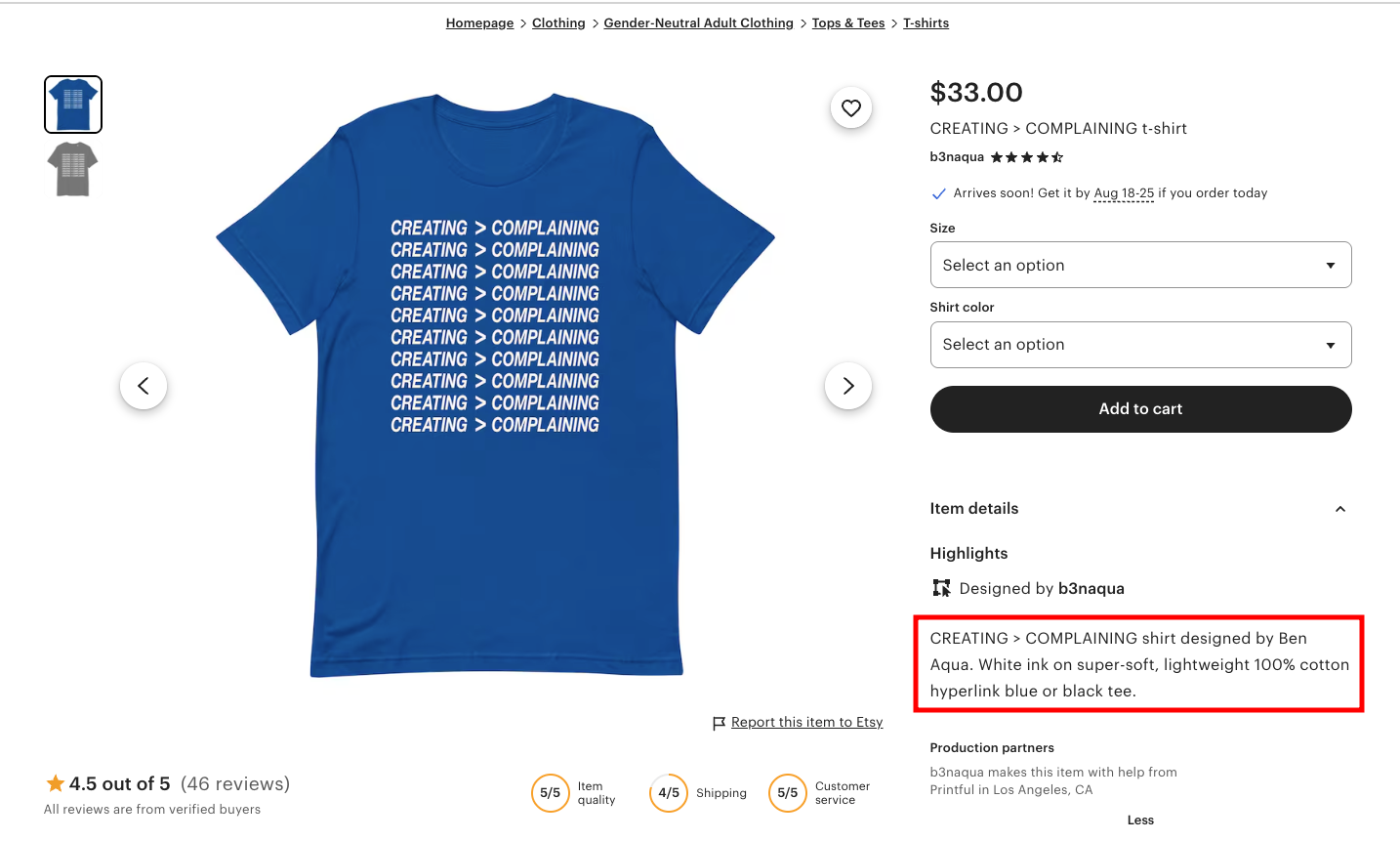Blog
Is print on demand profitable? (Strategies and business ideas)

Understanding Print on Demand Profitability
The print on demand (POD) business model has gained significant traction in recent years, attracting entrepreneurs looking to make their mark in e-commerce. By allowing individuals to create custom designs on various products without handling inventory or upfront costs, POD presents a unique opportunity. But how profitable is it really? In this article, we’ll explore strategies and business ideas that can help you maximize profits in the print on demand landscape.
What is Print on Demand?
Print on Demand is a process that allows artists, designers, and entrepreneurs to produce items only after a customer makes a purchase. This method eliminates the need for large upfront investments in inventory and storage, making it appealing for those starting out in e-commerce. Products typically include clothing, accessories, mugs, and home décor, among others.
The Profitability Potential of POD
When considering the profitability of a print on demand business, several factors come into play:
-
Product Selection: Choosing the right products to sell is crucial. Some items have higher margins than others. For instance, apparel tends to have a good profit potential, while smaller items like stickers may generate less.
-
Design Quality: High-quality, compelling designs attract more customers. Investing time in creating unique and visually appealing graphics can lead to greater sales and increase brand loyalty.
-
Marketing Strategies: Effective marketing can drive traffic to your store and increase conversion rates. Leveraging social media, search engine optimization (SEO), and email marketing can significantly impact your bottom line.
- Supplier Relationships: Working with reliable suppliers ensures quality products and timely delivery, which enhances customer satisfaction and repeat business.
Key Strategies for Success in POD
To ensure a profitable print on demand business, consider implementing the following strategies:
1. Niche Down Your Market
Finding a specific niche allows you to target a focused audience. Instead of trying to appeal to everyone, concentrate on a particular group with shared interests. Whether it’s pet lovers or fitness enthusiasts, crafting products for a defined audience can lead to increased sales and less competition.
2. Optimize Your Product Listings
Craft compelling product descriptions that make it easy for customers to understand what you’re offering. Use relevant keywords to enhance visibility on search engines. Optimize title tags, meta descriptions, and product tags to further improve your SEO rankings.
3. Utilize Social Media Marketing
Social media platforms are powerful marketing tools that can help promote your POD business. Regularly share engaging content related to your products, such as customer testimonials, behind-the-scenes looks at your design process, and creative uses for your items. Building a loyal community can ultimately lead to increased sales.
4. Collaborate with Influencers
Partnering with influencers who align with your brand can expand your reach and credibility. Influencer marketing is an effective way to showcase your products to new audiences and drive traffic to your online store.
5. Implement Email Marketing Campaigns
Email marketing remains one of the most effective channels for reaching customers. Collect email addresses through your website and social media. Send out regular newsletters with promotions, new product launches, and personalized recommendations to keep your audience engaged.
Exploring Business Ideas within POD
If you’re considering launching a print on demand business, here are some popular ideas to take inspiration from:
1. Custom Apparel
T-shirts, hoodies, and hats are classic POD products. Create designs that cater to trends, events, or specific interests. Seasonal collections can also keep your inventory fresh and appealing.
2. Home Décor Items
Items like wall art, throw pillows, and blankets offer a great opportunity to tap into the home décor market. Use popular themes like minimalism or inspirational quotes to attract buyers.
3. Accessories
Custom phone cases, tote bags, and jewelry can allow for unique personalization. Consider offering custom names or monograms, which can add a personal touch that customers appreciate.
4. Stationery Products
Notebooks, planners, and greeting cards make for excellent print on demand products. Unique illustrations or motivational quotes can appeal to a wide range of customers.
Assessing Costs and Pricing
Understanding your costs is essential to setting competitive prices for your products. Consider the following:
-
Supplier Costs: Each product comes with a base cost from your supplier. Be sure to compare different suppliers to find the best combination of price and quality.
-
Shipping and Handling: Evaluate shipping costs as they can affect your pricing strategy. Offering free shipping can be enticing, but be sure to account for these costs in your product pricing.
- Marketing Expenses: Budget for your marketing strategies. Paid advertising can yield substantial returns, but it’s essential to track your spending to maintain profitability.
Measuring Success
To assess the success of your print on demand business, monitor key performance indicators (KPIs):
-
Sales Volume: Track how many units you sell over time. This can help you identify trends and adjust your strategies accordingly.
-
Customer Acquisition Cost (CAC): Calculate how much you spend to acquire each customer. Balancing CAC with your average order value can ensure a sustainable business model.
- Conversion Rate: Monitor the percentage of visitors to your site who make a purchase. A higher conversion rate generally indicates effective marketing and product offerings.
Conclusion
The print on demand business model offers intriguing opportunities for entrepreneurs. While profitability can vary based on numerous factors, adopting strategic practices can foster growth and success. By carefully selecting your products, honing your marketing strategies, and maintaining strong supplier relationships, you can navigate the POD landscape effectively. Focus on creating a unique brand that resonates with your target audience to stand out in this competitive space. With dedication and the right approach, your print on demand venture can become a thriving enterprise.
